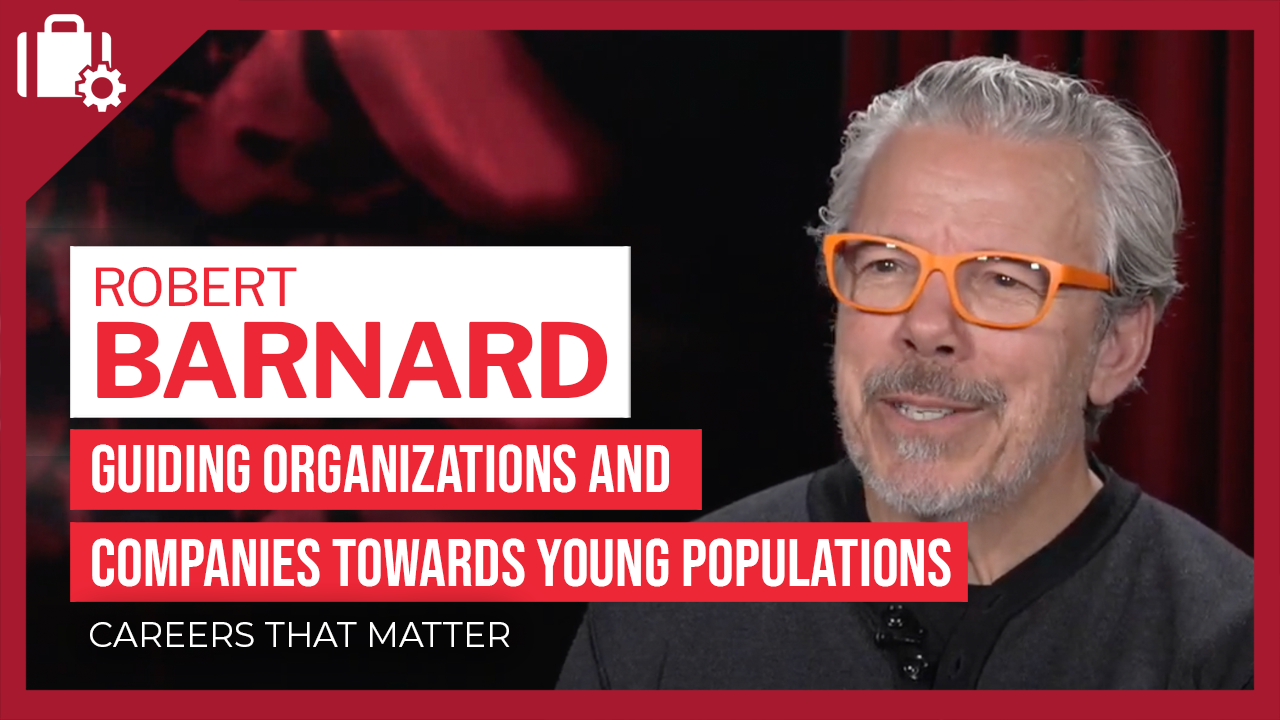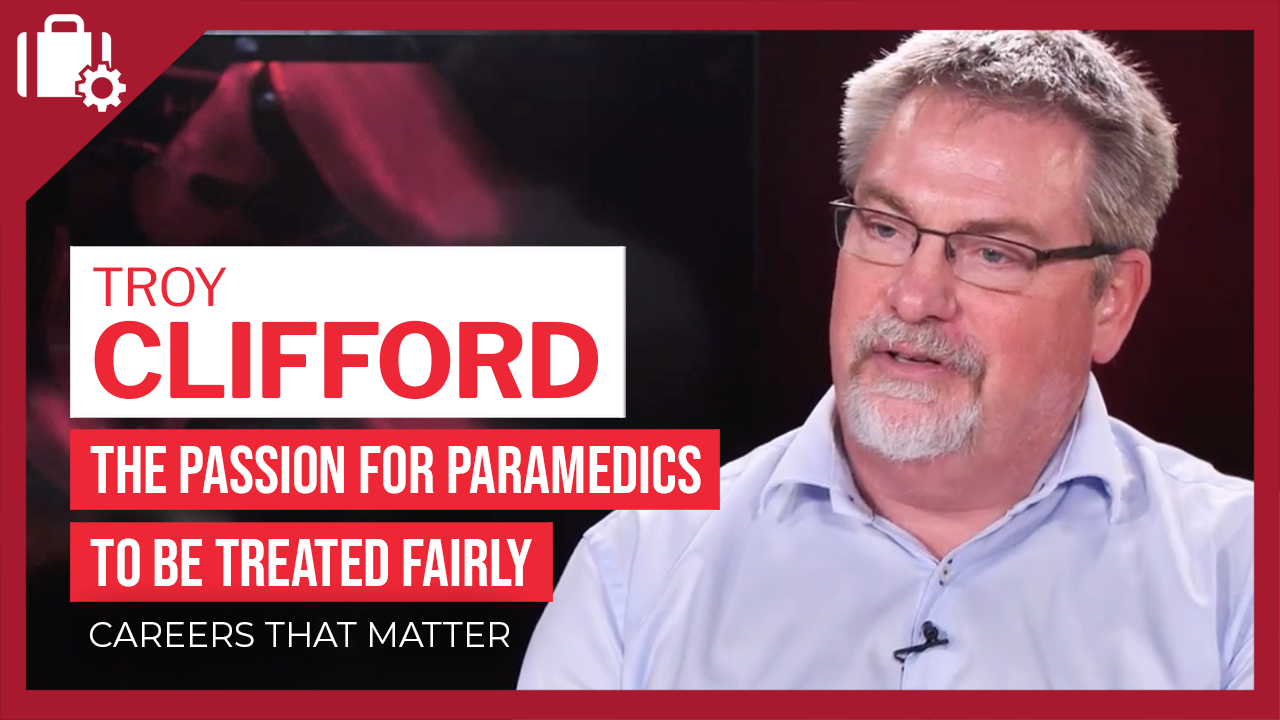
Episodes
Search episodes:
Browse by category
Building relationships between government and infrastructure projects
Mark Liedemann is great at relationship management – his job as CEO of Infrastructure BC calls for it, helping to cultivate the relationships between government and builders of infrastructure around British Columbia. To get to where he is today, it was a journey through a biochemistry degree, teaching in Germany, the banking industry, a business degree, and more.
Growing a clean-tech accelerator and leading a team
When Jeanette Jackson took over a clean-tech accelerator called Foresight, it was a team of two. Today, that number has grown to 50. To get there, she had to start with a hands-on strategy, doing everything from ideas to pitching them. Over the years, she transitioned into the leadership role that she serves today. Her biggest advice to others is to get a handle on fine details such as numbers for financials and keeping track of projects’ progress.
Enabling the funding the make communities better
As far as Dara Parker is concerned, she has her dream job. As the vice-president of grants and community initiatives at the Vancouver Foundation, her mission is to distribute the funding to make communities better. Throughout her career, she has worked with people and found that understanding people is fundamental to growing as a person and her current role.
Giving yourself to others and learning from each other
What is an international humanitarian? To Paul Sitnam, it is the idea of giving yourself to others and learning from the people that you are giving to. And because his work takes him all over the world, there is much to learn – how to work with people, respect their cultures, understand their procedures, and understand each other.
Solving problems that nobody else wants to touch
How do you get First Nations, government, and the energy industry together? That is something that Chris Sankey knows the answer to, because it is what he does. He loves solving problems that nobody else wants to touch and that drives his mission – aiming for a Canada with economic opportunities without racism.
How to say yes to new opportunities
If you ask Wade Davis, there is a contentious relationship between the meanings of “job” and “work” and the assumption that a work journey in life is linear. To him, every decision leads to a different path in life and those who regret their paths are the ones who decide based on pressures imposed upon them. As a result, he has embarked on a philosophy to say “yes” to new opportunities.
Diving into a career in film and broadcast television
Rudy Bottignol’s career has taken many turns. He started as a self-taught filmmaker and found success, which sparked an interest in doing it for a career. Going to university, he majored in film and entered the then-new field of independent productions by starting his own company – he was one of the rare breed of instant entrepreneurs after university.
Guiding organizations and companies towards young populations
Robert Barnard is the co-founder of Youthful Cities, which seeks to make our cities more youthful and dynamic. His path started as a human geography student, which fascinated him. As a self-described “serial entrepreneur,” his studies kept combining with his passion. Every step of the way, people kept asking, “What’s with all these young people?” Seeing a demand for governments and companies to market to young people led him to pivot his focus towards creating communities focused around youth and young adults.
Advising corporations and gaining trust through confidentiality
Jess Ketchum sees himself as an advisor to corporations, which sounds easier than it actually is. His top quality is confidentiality – CEOs invest a certain level of trust in him and expect quality feedback in return. His consistent work and quick turnaround have led to word-of-mouth clients through building relationships and trust.
Providing data to businesses to make informed decisions
Businesses need information to make informed decisions – and that is what Ken Peacock is here for. In his role at the Business Council of British Columbia, he takes information from the provincial government and connects it with business leaders for feedback and development. He didn’t start out wanting to be an economist – but he had a curiosity to understand how the world worked. At the advice of a professor, he went into economics. This changed his life and career path.
Becoming a plastics expert thanks to great teachers
When a large company needs a revolutionary new plastic and can’t figure out what to do, they come to Chris DeArmitt. He got into it when a fellow scientist told him that the demand for plastic knowledge is more than the supply of plastic itself, inspiring him to start his journey. And being taught to “use your own brain” growing up and surrounded by great teachers, this career’s pathway seemed to be tailor-made for him.
Feeding the desire to learn how things work
Drew Collier is the CEO of LGM Financial Services, which handles extended warranties for various car brands in Canada. Being based on the west coast, he has an early start each day to accommodate those out east. And his work is never done – evenings are prep work for the next day. His path started in electronics, which fed his interest in knowing how things work. This desire to learn about the inner workings of everything eventually led him into business, where he is today.
Becoming a diet researcher by not being afraid to fail
Dr. David Harper’s specialty is in diet, but he emphasizes that he is a PhD in life sciences, not a medical doctor. His true love is education and teaching, which he has done for more than 40 years, something he sees as an example of giving back to the field that gave him his purpose. He sees himself as an advocate for healthy diet who goes beyond the commercial interests of the industry. To him, the key to success is having a vision, being authentic, being accountable for your own actions, not being afraid to be vulnerable, being empathetic, and having courage to be all of the above. ”Don’t worry about failure,” he says, “but fail fast and fail forward.”
Writing as a creative process: Preparation is key
John Rapley is not a person who will sit still. Starting out in academia, he has bounced around various roles, even starting his own think tank at one point. But he keeps coming back to one thing – writing. It is not as simple as sitting down and writing. According to John, 90% of what is written is unseen, hidden in research and preparation. Most of what the public sees is like a small slice of the iceberg.
Becoming the second most powerful foodie in the world
Dr. Marion Nestle’s journey to becoming the number-two most powerful foodie in the world (according to Forbes) started as an undergraduate who was interested in food, only to find that the only choices are agriculture and dietetics – two fields she was less than enthralled with. Instead, she found her way through the world of science, ranging from studying bacteria and molecular biology. After entering academia, she was handed a nutrition class to teach – and that transformed her world and catapulted her into the spotlight.
From startup to success: Leading a landlord organization
David Hutniak leads Landlord BC, which is an industry association that represents owners and managers of rental housing in British Columbia. His organization represents landlords across BC and balances the interests of landlords and tenants.
Keeping an open mind: Succeeding in the pharmaceutical industry
Rory Mullen, as the head of BioPharma and IDA Ireland, meets a lot of people, to say the least. He started studying in business and working in advertising, but wanted to expand his horizons internationally, outside his native Ireland.
Feeling limitless: Becoming an economics professor
Dr. Laura Alfaro is a professor and economist at Harvard Business School, which means balancing research, teaching, and meeting with faculty and other experts in the field. This has been the career she has always wanted from a young age, which she admits is “bizarre.”
The passion for paramedics to be treated fairly
Troy Clifford identifies as a paramedic, but his mission is much more. He is the president of a union for ambulance and paramedics union, which is also the profession’s de-facto organization in British Columbia. His role is to support its workers and be the face of BC’s ambulance service.
Offering advice from beyond the horizon
Olaf Groth wants to hear what your frontier looks like – and help you achieve it. That is his mission and purpose, as he helps people and organizations shift their strategy and thinking to meet their goals.




















